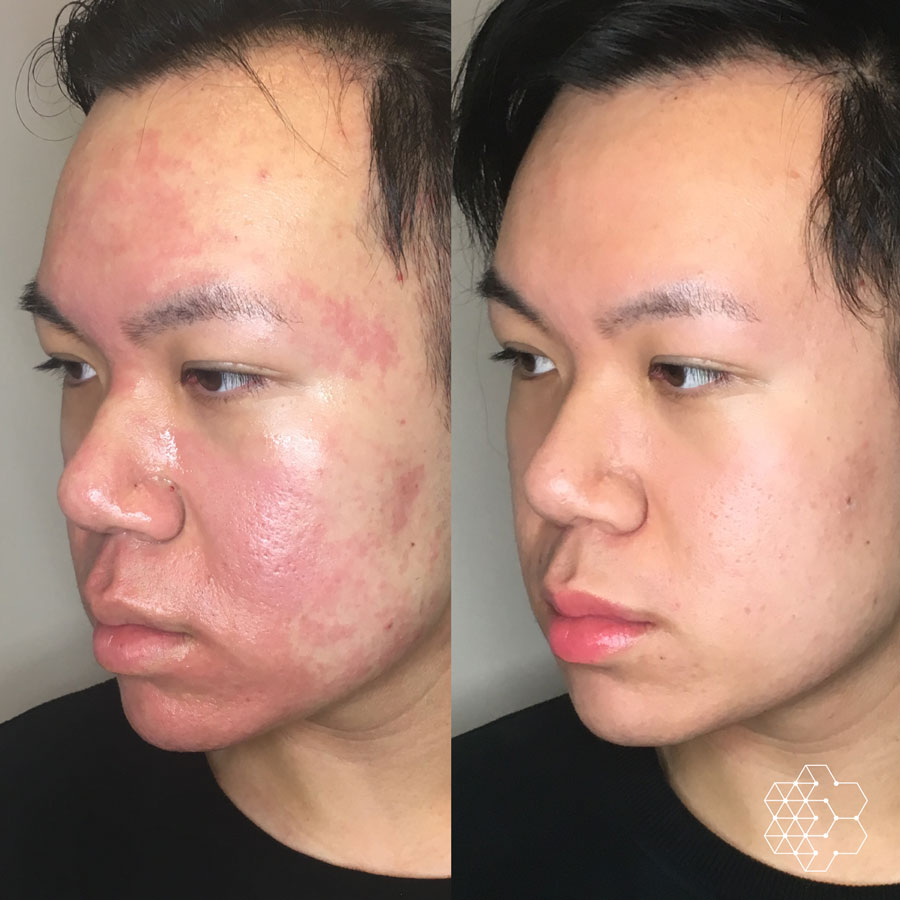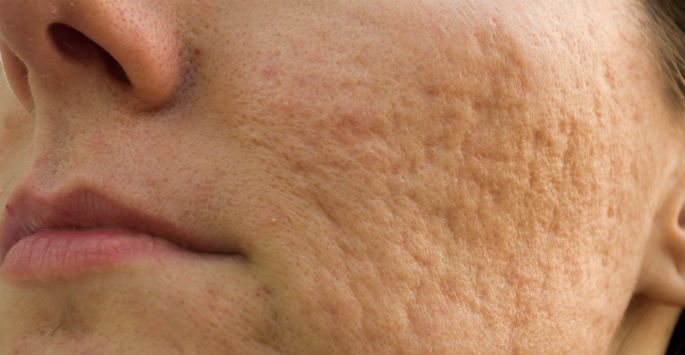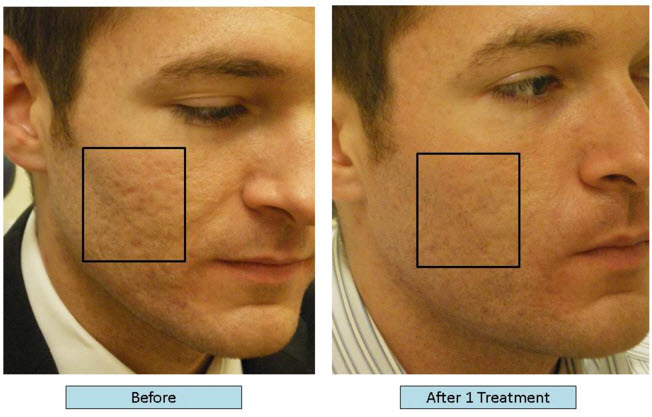Targeted Acne Scars Treatment: Achieve Smooth, Even Complexion
Targeted Acne Scars Treatment: Achieve Smooth, Even Complexion
Blog Article
Comprehending the Numerous Skin Problems and Reliable Treatment Alternatives for Acne Marks
Acne marks represent a complex interplay of skin disease that considerably impact individuals' self-confidence and overall skin health and wellness. Understanding the unique kinds of acne scars-- hypertrophic and atrophic-- along with their underlying causes, is crucial for establishing efficient treatment strategies. Different healing options exist, ranging from advanced skin-related procedures to natural treatments. Nevertheless, the efficiency of these treatments typically pivots on customized evaluations by certified experts. As we check out the landscape of acne mark management, it ends up being evident that the trip toward clearer skin might include greater than just topical services.
Types of Acne Marks

In contrast, hypertrophic scars arise from an overproduction of collagen throughout the recovery procedure, resulting in raised locations on the skin. These scars are frequently firm and can vary in color, sometimes appearing red or darker than the surrounding skin.
Understanding these sorts of acne scars is crucial for establishing an efficient treatment strategy - acne and acne scars treatment. Choices might include chemical peels, laser therapy, microneedling, or facial fillers, customized to the specific scar type. A complete consultation with a skin specialist can assist establish one of the most suitable treatment, considering the person's skin kind, scar intensity, and overall skin health
Causes of Acne Scarring
Scarring happens as a result of the body's natural recovery feedback to swelling and injury triggered by acne sores. When acne types, it activates an inflammatory action, resulting in the release of various cytokines and growth factors that promote healing. However, this process can sometimes result in extreme cells development or insufficient repair service, leading to scars.
The main sources of acne scarring include the seriousness of the acne itself, duration of the lesions, and specific skin types. Severe inflammatory acne, such as nodules and cysts, is most likely to lead to scarring because of deeper tissue damage. Additionally, incorrect handling of acne lesions, such as choosing or pressing, can worsen tissue injury and swelling, enhancing the possibility of scarring.
Hereditary proneness likewise plays a considerable duty; individuals with a family background of scarring go to a greater threat. In addition, skin kind and color can affect mark development, as darker skin tones might experience post-inflammatory hyperpigmentation, while lighter skin may develop atrophic scars.
Inevitably, comprehending these causes is crucial in managing acne and mitigating the possibility for scarring.

Therapy Alternatives for Scarring
Efficient treatment choices for acne scarring differ depending upon the kind and intensity of the marks. Generally classified into atrophic, hypertrophic, and keloid scars, these problems need tailored strategies for ideal outcomes.
For atrophic scars, which are defined by a loss of tissue, treatments such as chemical peels, microdermabrasion, and laser therapy are frequently used. These approaches promote skin renewal and boost collagen production, therefore improving skin texture. Subcision, a minimally intrusive treatment, can likewise be reliable by separating fibrous bands beneath the skin.
Keloid and hypertrophic scars can be extra click for more challenging to treat. Options include corticosteroid injections to reduce inflammation and flatten the scars. In some instances, cryotherapy or laser treatment might be recommended to lessen their appearance.
Surgical choices are readily available for severe scarring, where excision or skin grafting might be needed. It's crucial for people to speak with a skin specialist to assess their certain mark type and go over the most appropriate treatment plan. Integrating multiple therapies frequently produces the most effective end results, making sure that each person's distinct skin problem is addressed successfully.
Natural Home Remedy and All-natural Solutions
All-natural remedies and home remedies can offer an obtainable method for people seeking to enhance the look of acne marks (acne treatment for sensitive skin). Various active ingredients located in the home kitchen area have actually demonstrated potential advantages in enhancing skin texture and promoting healing

One more efficient option is lemon juice, which works as a natural exfoliant and can lighten hyperpigmentation. It needs to be utilized cautiously, as it may create photosensitivity. Oatmeal masks are additionally helpful; their gentle peeling can aid get rid of dead skin cells while calming irritation.
Essential oils, such as tea tree oil and lavender oil, can additionally sustain mark recovery because of their antimicrobial buildings. It is important to perform a spot examination prior to applying any type of solution to guarantee there are no damaging reactions. These natural options can be a complementary technique in the trip to decrease acne marks.
Avoiding Future Scarring
Taking on an aggressive approach to skincare can dramatically decrease the risk of developing future acne scars. One of the essential techniques is to handle acne successfully as it occurs. This entails utilizing non-comedogenic skincare items and drugs suggested by skin doctors that target acne without irritating the skin. Regular cleansing, exfoliation, and hydration can aid preserve skin health and wellness and prevent clogged pores.
Additionally, avoiding the temptation to pick Homepage or press acne lesions is crucial, over at this website as this can lead to swelling and succeeding scarring. Rather, people must concentrate on applying topical therapies that advertise recovery and decrease inflammation. Ingredients such as salicylic acid, benzoyl peroxide, and retinoids are understood for their efficiency in handling acne and decreasing marks.
Sun protection is another essential element; exposure to UV rays can darken marks and hamper recovery. Consequently, making use of a broad-spectrum sunscreen daily can minimize these impacts - skin rejuvenation treatments.
Last but not least, preserving a healthy diet rich in anti-oxidants and remaining hydrated assistances skin regeneration. By implementing these precautionary steps, people can dramatically lower their threat of future scarring and promote general skin health.
Verdict
In verdict, a comprehensive understanding of acne scars, encompassing both hypertrophic and atrophic kinds, is necessary for efficient therapy approaches. Appointment with a dermatologist stays critical to devise customized methods that think about specific skin kinds and mark extent, inevitably boosting the efficiency of mark monitoring strategies.
Acne marks stand for an intricate interaction of skin problems that dramatically influence individuals' self-confidence and overall skin health. The 2 primary categories of acne scars are hypertrophic and atrophic marks. These scars are more categorized right into 3 subtypes: ice choice scars, which are narrow and deep; boxcar marks, which are wider and have distinct sides; and rolling marks, which develop a wave-like look due to unequal skin structure.
A complete appointment with a skin specialist can assist establish the most ideal treatment, taking into account the person's skin type, scar intensity, and overall skin health.
Assessment with a dermatologist remains vital to devise tailored methods that take into consideration specific skin kinds and scar severity, eventually improving the efficacy of scar management strategies.
Report this page